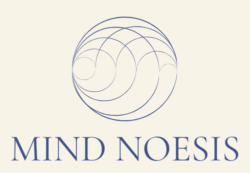Enlightenment. It’s a word that conjures up images of serene monks meditating under bodhi trees or spiritual masters basking in divine wisdom. In Buddhism, enlightenment, or nirvana, is the ultimate goal, a state of liberation from suffering, where one sees reality clearly and lives free from attachment. Other cultures offer similar concepts: in Hinduism, it’s moksha; in Taoism, it’s harmony with the Tao.
But let’s face it, most of us aren’t renouncing our jobs or heading to a mountain monastery anytime soon. The good news is that the principles of enlightenment can be adapted to our modern lives. While full enlightenment may seem like a lofty goal, small shifts in perspective can lead to greater clarity, peace, and awareness in the day-to-day. Think of it as “enlightenment lite,” perfectly suited for our bustling, connected world.
So, how can we embrace enlightenment in our modern lives? Here I’ll give psychological insights, timeless teachings, and practical habits that can guide you on this path.
Seeing Reality Clearly: The Psychology of Enlightenment
One of the cornerstones of enlightenment is a profound shift in perspective, seeing reality as it truly is rather than through the filters of our ego, biases, or desires. This requires challenging deeply ingrained mental habits and becoming more aware of how our minds work.
1. Let Go of the Illusion of Control
Much of our stress and frustration comes from trying to control things beyond our influence. Enlightenment teaches us to accept life as it is rather than resisting it. Psychologically, this reduces anxiety and fosters resilience.
2. Detach from the Ego
The ego thrives on comparison, validation, and attachment. It’s the voice in your head that says, “I’ll be happy when…” Enlightenment is about quieting that voice and realizing your worth isn’t tied to external success or possessions.
3. Embrace Impermanence
Everything is temporary: joy, pain, success, failure. Understanding this helps us stop clinging to what feels good or fearing what feels bad. It’s a mindset that brings emotional freedom.
By shifting these perspectives, you start to see the world with greater clarity. Instead of reacting impulsively or getting lost in mental noise, you respond with mindfulness and wisdom.
The Teachings of Buddha: Ancient Wisdom for Modern Times
Buddha’s teachings, though ancient, remain incredibly relevant today. Here are a few key principles of enlightenment and how to apply them in modern life:
1. The Four Noble Truths
- Life involves suffering (dukkha).
- Suffering arises from craving and attachment.
- Letting go of craving can end suffering.
- The Eightfold Path leads to liberation.
Modern Take: Accept that discomfort is part of life, but realize that much of it stems from resisting reality. Practicing non-attachment can reduce emotional turmoil.
2. The Eightfold Path
This is Buddha’s guide to enlightenment, encompassing right view, intention, speech, action, livelihood, effort, mindfulness, and concentration.
Modern Take: Strive for ethical living, mindful awareness, and mental clarity. Align your actions with your values and cultivate focus in a world full of distractions.
3. Mindfulness and Meditation
Buddha emphasized observing the mind through meditation. By becoming aware of thoughts and feelings without judgment, you begin to transcend their grip on you.
Modern Take: Incorporate mindfulness into daily tasks, whether it’s eating, walking, or working. Take a few moments each day to meditate, even if it’s just to focus on your breath.
These teachings remind us that enlightenment isn’t about escaping life; it’s about engaging with it more fully, with an open heart and clear mind.
10-Minute Daily Habits to Shift Your Perspective
Here are small but powerful habits inspired by Buddha’s teachings that you can incorporate into your daily routine:
- Morning Gratitude Check-In:
Spend a minute listing three things you’re grateful for. This sets a positive tone for the day. - Observe Your Breath:
Take 2 minutes to focus on your breathing. Inhale deeply, exhale slowly. Notice the sensations without trying to change anything. - Mindful Eating:
During one meal, eat without distractions. Focus on the taste, texture, and aroma of your food. - Pause Before Reacting:
When something triggers you, take a 10-second pause to breathe and reflect before responding. - Let Go of One Small Attachment:
Identify one thing you’ve been clinging to, an idea, a grudge, or a material possession, and consciously let it go. - Scan for Joy:
At the end of the day, recall one small moment that brought you joy or peace. Relive it in your mind for a minute. - Compassion Practice:
Spend a moment wishing well to yourself and others. Say, “May I be happy. May they be happy.” - Limit Digital Noise:
Dedicate 10 minutes to being completely screen-free. Sit with your thoughts or take a walk. - Affirm Your Values:
Write down or reflect on one value you want to embody today, kindness, honesty, patience, and commit to it. - Reflect Before Bed:
Ask yourself, “Did I act with mindfulness and kindness today? What can I improve tomorrow?”
These habits take little time but can have a profound impact on your mindset over weeks and months.
Final Thoughts: Striving Toward Enlightenment
Enlightenment isn’t an all-or-nothing state. It’s a journey, a practice, a way of seeing the world with more clarity and compassion. While only a handful of people in history might have achieved full enlightenment, striving toward it, even on a smaller scale, can bring us closer to peace, awareness, and a more fulfilling life.
In the modern world, enlightenment isn’t about renouncing life’s pleasures or responsibilities. It’s about engaging with them more mindfully, with a sense of purpose and balance. So take a breath, let go of what you can’t control, and take one small step on this path. You might be surprised at how transformative it can be.



